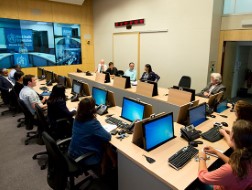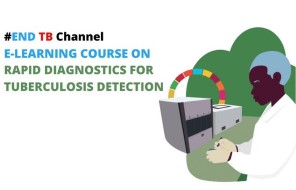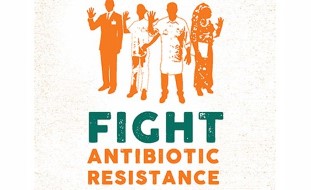WHO Standard Operating Procedures (SOPs) for Emergencies
This course on WHO Standard Operating Procedures (SOPs) for Emergencies is designed for personnel who will be assigned by WHO to go on deployment in response to health emergencies. It covers all the essential areas of WHO administrative procedures in response to health emergencies.
Photo credit: WHO / Christopher Black
This course is also available in the following languages:
Français – العربية
Course contents
Course Introduction:
Welcome to this course on WHO Standard Operating Procedures (SOPs) for Emergencies. This course is introduced by Dr Mike Ryan.
Module 1: WHO’s Role in Emergencies and Emergency Response Framework :
In this module, we learn about WHO’s role in emergency response and explore the Emergency Response Framework (ERF). This module is split into four units.
Module 2: Introduction to SOPs for Emergencies:
In this module, we explore the WHO SOPs for emergencies. We will look at its context and its importance. We will then walk you through the 10 key sections of SOPs for emergencies and how to activate them.
Module 3: Delegation of Authority during Emergencies :
In this module, we will explore the policy of Delegation of Authority (DOA) during emergencies and its operationalization in GSM (Global Management System).
Module 4: Planning for Emergencies:
In this module, we explore planning considerations for emergencies.
Module 5: Grant and Finance during Emergencies:
In this module, we look at policy considerations for grants and finance for emergencies.
Module 6: Procurement for Emergencies:
In this module, we will look at the procurement process for emergencies.
Module 7: FENSA During Emergencies – Engagement of Non-State Actors:
In this module, we look at the Framework of Engagement with Non-State Actors (FENSA), and consider its purpose, risks and benefits.
Module 8: Risk Management in Emergencies:
In this module, we will look at risk management in emergencies.
Module 9: Human Resources for Emergencies:
In this module, we will look at HR processes for emergencies, including deployment procedures, roster management and surge support.
Module 10: Ethics and Emergencies:
In this module, we look at WHO’s Code of Ethics and Professional Conduct, Prevention of Sexual Exploitation and Abuse (PSEA) and Social Media Policy. We will consider the significance of adhering to these ethical principles in an emergency context.
Module 11: Introduction to OSL:
This module will introduce Operation Support and Logistics (OSL) and outline its role in the Incident Management System (IMS).
Module 12: OSL and Logistics Management:
In this module, we will learn about the OSL standard workflow, strategic response plan, and the concept of operations (CONOPs).
Module 13: Fleet Management:
This module will provide you with an overview of OSL fleet management in emergencies.
Module 14: IT in Emergencies :
This module will explore IT considerations in emergencies, including satellite devices and the field office network.
Module 15: Office and Camp Set Up:
In this module, you will explore the humanitarian aspects of OSL’s role in an emergency response, and the considerations for establishing a field office.
Module 16: Emergency Supply Chain Management:
In this module, we will explore the role of the WHO OSL supply unit and principles of supply chain management (SCM).
Module 17: Fixed Assets Management:
In this module, we will learn about WHO procedures for fixed asset management in an emergency response.
Module 18: OSL and VHFs:
In this module, we will explore OSL’s role and responsibilities in the response to an outbreak of Viral Haemorrhagic Fevers (VHF).
Course Review:
This is a revision module for the SOPs for Emergencies course.
User Reviews
Be the first to review “WHO Standard Operating Procedures (SOPs) for Emergencies”
You must be logged in to post a review.







There are no reviews yet.